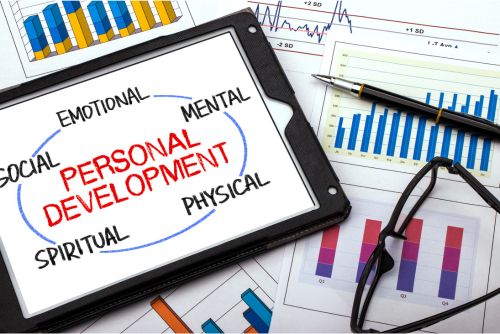Will Life Coaching Be Regulated
In our fast-paced and highly competitive world, many individuals find it challenging to navigate the complexities of personal and professional life. This has led to a significant increase in the demand for life coaching services. Life coaching Dubai has become the second fastest growing industry worldwide, with individuals seeking guidance and support to achieve their goals and lead more fulfilling lives.
However, unlike other professions such as therapy or counseling, life coaching remains largely unregulated. There are no specific qualifications or licenses required to practice as a life coach. This lack of regulation raises questions about the credibility and professionalism of the industry. In this blog, we will explore the current state of life coaching regulation and the arguments for and against its regulation.
While life coaching may be an unregulated industry, it is important for coaches to be aware of the legal aspects and general business rules that apply. These include choosing the right business type, registering the business, and following ethical guidelines. Additionally, voluntary certifications and professional bodies play a crucial role in setting standards and promoting ethical practices in the coaching industry. Let's delve deeper into the current state of life coaching regulation and its implications.
Exploring The Current State Of Life Coaching Regulation
Life coaching is currently an unregulated industry, meaning there are no specific qualifications or licenses required to practice. This lack of regulation has both advantages and disadvantages. On one hand, it allows for greater flexibility and innovation in coaching methods. On the other hand, it raises concerns about consumer protection and the quality of coaching services. While there are no legal requirements for life coaching, coaches must still adhere to general business rules and legal frameworks to ensure the legitimacy and professionalism of their practice.
Understanding Voluntary Certification Vs. Mandatory Licensing
Certification and licensing are two different approaches to regulating professions, including the coaching profession. Voluntary certification is offered by professional bodies such as the International Coaching Federation (ICF) and provides coaches with a recognized credential that demonstrates their competence and adherence to ethical guidelines. It is not mandatory to obtain certification as a life coach Dubai, but it can enhance a coach's profile and provide access to structured coaching tools and techniques.
Mandatory licensing, on the other hand, is a legal requirement imposed by governments or regulatory bodies. It typically involves specific educational qualifications, training, and passing an exam to obtain a license to practice. Currently, mandatory licensing is not required for life coaching in most countries.
The choice between voluntary certification and mandatory licensing depends on various factors, including the coach's personal goals, the level of professional development desired, and the regulatory environment of the coaching industry in their country. Both approaches aim to ensure the quality and professionalism of coaching services, but they differ in their level of enforcement and scope of regulation.
The Role Of Professional Bodies In Life Coaching Today
Professional bodies, such as the International Coach Federation (ICF), play a crucial role in setting standards and promoting ethical guidelines in the coaching industry. These organizations provide voluntary certifications, promote professional development opportunities, and establish codes of ethics that coaches can adhere to.
The ICF, in particular, is a globally recognized professional body for coaches and offers three levels of credentials: Associate Certified Coach (ACC), Professional Certified Coach (PCC), and Master Certified Coach (MCC). By obtaining these credentials, coaches demonstrate their commitment to professional growth, ethics, and excellence in coaching.
Professional bodies also serve as a platform for coaches to network, share knowledge, and stay updated on industry trends. They provide resources, educational programs, and forums for coaches to enhance their skills and stay connected with the coaching community. The role of professional bodies in the coaching industry is essential for maintaining high standards and ensuring the professionalism and credibility of the coaching profession.
The Argument For Regulating Life Coaching

The argument for regulating life coaching revolves around the need for consumer protection, establishing a standardized code of ethics, and ensuring the quality of coaching services. Regulation can protect consumers from unqualified coaches who may lack the necessary skills and knowledge to effectively support their clients. It can also ensure that coaches adhere to a standardized code of ethics, promoting ethical conduct and professional behavior. By regulating the coaching industry, clients can have confidence in the quality and credibility of coaching services they receive.
Protecting Consumers From Unqualified Coaches
Regulation in the coaching industry can provide much-needed consumer protection, particularly from unqualified coaches. Without regulation, anyone can claim to be a Dubai life coach without possessing the necessary skills, knowledge, or training. This poses risks to clients who may rely on the guidance and support of a coach to navigate important life decisions.
By implementing regulations, such as mandatory certifications or licensing, clients can have confidence that their coaches have met certain standards of training and competency. This can help protect clients from ineffective or potentially harmful coaching practices. Additionally, regulation can establish minimum requirements for coaching education and ongoing professional development, ensuring that coaches are continuously improving their skills to better serve their clients.
Establishing A Standardized Code Of Ethics
One of the key arguments for regulating life coaching is the establishment of a standardized code of ethics. A code of ethics provides guidelines and principles that coaches should adhere to in their professional conduct. It sets expectations for ethical behavior, client confidentiality, and professional boundaries.
Professional bodies, such as the International Coach Federation (ICF), have developed comprehensive codes of ethics that coaches can adopt. These codes outline the responsibilities of coaches towards their clients, including maintaining confidentiality, avoiding conflicts of interest, and respecting client autonomy. By adhering to a standardized code of ethics, coaches demonstrate their commitment to ethical practices and provide assurance to clients that they will receive professional and ethical coaching services.
Coaches who obtain professional certifications, such as the ICF's Associate Certified Coach (ACC), Professional Certified Coach (PCC), or Master Certified Coach (MCC) credentials, are also required to uphold the ICF's code of ethics as part of their certification process. This promotes ethical behavior and professionalism among certified coaches.
The Case Against Regulation In Life Coaching

While there are arguments for regulating life coaching, there are also valid concerns against it. One of the main arguments against regulation is the need to preserve the flexibility and innovation that currently exists in coaching methods. Regulation could potentially stifle creativity and limit the ability of coaches to tailor their approach to meet the unique needs of individual clients. Additionally, regulation may create entry barriers for aspiring coaches, making it more difficult for them to enter the profession and potentially limiting the diversity and accessibility of coaching services.
Preserving Flexibility And Innovation In Coaching Methods
One of the key advantages of the current unregulated state of life coaching is the flexibility and innovation it allows in coaching methods. Coaches have the freedom to develop their own unique approaches and techniques that best suit their clients' needs. This flexibility enables coaches to tailor their coaching methods to individual clients, taking into account their specific goals, challenges, and preferences.
Regulating life coaching could potentially limit this flexibility and innovation by imposing standardized approaches or methods. Coaches may feel constrained by strict regulations and unable to explore new techniques or adapt their methods to emerging research or client preferences. The ability to innovate and adapt coaching methods is crucial in meeting the evolving needs of clients and providing effective and personalized coaching experiences.
The Impact Of Regulation On Entry Barriers
Regulating the coaching industry may create entry barriers for aspiring coaches, making it more difficult for them to enter the profession. This can have a significant impact on small business owners and individuals seeking to start a coaching practice. Regulations such as mandatory certifications or licensing may require substantial time and financial investment, potentially limiting the accessibility of coaching as a profession.
The current unregulated nature of life coaching allows for greater accessibility and diversity in the profession. It enables individuals from various backgrounds and experiences to enter the coaching industry and offer their unique perspectives and expertise. By removing unnecessary entry barriers, coaching can remain an inclusive and accessible profession that benefits both coaches and clients.
How Life Coaches Can Prepare For Potential Future Regulations

While the future of life coaching regulation remains uncertain, it is important for life coaches to be prepared for potential changes. By staying informed about industry trends and legal requirements, coaches can adapt their practices and ensure compliance with any future regulations. Additionally, pursuing voluntary certifications and accreditations can enhance a coach's professional profile and demonstrate their commitment to ongoing professional development. Coaches should also stay engaged with professional bodies and networks to stay updated on any developments in the coaching industry.
Pursuing Voluntary Certifications And Accreditations
One way for life coaches to prepare for potential future regulations is to pursue voluntary certifications and accreditations. These credentials demonstrate a coach's commitment to professional development and adherence to ethical standards. The International Coaching Federation (ICF) offers globally recognized certifications, such as the Associate Certified Coach (ACC), Professional Certified Coach (PCC), and Master Certified Coach (MCC).
Obtaining these certifications can enhance a coach's professional profile, provide access to structured coaching tools and techniques, and demonstrate a commitment to ongoing professional development. Coaches can also consider pursuing accreditations from other reputable organizations, such as the European Mentoring and Coaching Council (EMCC) or the Association for Coaching (AC). By actively investing in their professional growth, coaches can position themselves for success in an evolving regulatory landscape.
Staying Informed About Industry Trends And Legal Requirements
To prepare for potential future regulations, life coaches must stay informed about industry trends and legal requirements. This includes staying updated on any changes in the coaching profession, such as emerging best practices, new research findings, and evolving client needs. Coaches can stay informed by attending conferences, participating in webinars, joining professional networks, and engaging with industry publications.
In addition, coaches should stay aware of any legal requirements that may apply to their coaching business. This includes understanding local laws and regulations related to running a business, data protection, and professional liability. By staying informed about industry trends and legal requirements, coaches can adapt their practices and ensure compliance with any future regulations that may be introduced.
The Global Perspective On Life Coaching Regulation

The regulation of life coaching varies across different countries and regions. While some countries have implemented regulatory practices and established standards for the coaching profession, others have taken a more hands-off approach, allowing the industry to remain largely unregulated. The International Coaching Federation (ICF) has played a significant role in promoting global standards and ethical practices in the coaching profession. However, the absence of universal regulations means that the coaching industry continues to operate under different regulatory frameworks in different parts of the world.
A Look At Countries With Life Coaching Regulations
Life coaching regulations vary across countries and regions. Some countries have implemented specific regulations and standards for the coaching profession, while others have minimal or no regulations in place. The following table provides a snapshot of the regulatory practices in selected countries:
| Country | Regulatory Practices |
| United States | No specific regulations, industry largely unregulated |
| United Kingdom | No mandatory regulations, industry self-regulated |
| Australia | No specific regulations, industry self-regulated |
| Canada | No mandatory regulations, industry self-regulated |
| Germany | No mandatory regulations, industry self-regulated |
| France | No specific regulations, industry self-regulated |
| Japan | No specific regulations, industry self-regulated |
It is important for life coaches to understand the regulatory environment in their country or region and comply with any applicable laws or guidelines. Professional bodies, such as the International Coaching Federation (ICF), can provide guidance on industry standards and best practices.
Lessons From Other Professions: Regulation Best Practices
Looking at other regulated professions can provide valuable insights into best practices for regulating the coaching industry. Professions such as therapy, counseling, and psychology have established regulatory frameworks that ensure professional standards and protect the well-being of clients. These frameworks often include mandatory certifications or licensing, adherence to ethical guidelines, and ongoing professional development requirements.
Life coaching can learn from these regulated professions and adopt similar practices to enhance professionalism and credibility. This may include establishing standardized codes of ethics, implementing certification or licensing requirements, and promoting ongoing professional development. By implementing best practices from other regulated professions, the coaching industry can ensure the quality and integrity of its services.
The Future Of Life Coaching In A Regulated Environment

The future of life coaching in a regulated environment presents both opportunities and challenges. Regulation can provide greater credibility and consumer confidence in coaching services, attracting more clients and expanding the reach of the coaching profession. It can also establish industry standards and best practices, promoting professionalism and ethical conduct.
However, regulation may also pose challenges, such as potential limitations on flexibility and innovation in coaching methods. It may also create barriers to entry for aspiring coaches, limiting the diversity and accessibility of coaching services. The future of life coaching in a regulated environment will depend on finding the right balance between regulation and maintaining the unique qualities that make coaching effective and transformative.
Opportunities And Challenges Ahead
The regulated environment presents both opportunities and challenges for the coaching industry. On one hand, regulation can provide opportunities for coaches to gain recognition, establish industry standards, and attract more clients. It can also create a more professional and credible image for the coaching profession, leading to increased demand for coaching services.
However, regulation also poses challenges. It may limit the flexibility and innovation that currently exists in coaching methods and approaches. It may also create barriers to entry for aspiring coaches, making it more difficult for them to enter the profession. Coaches will need to navigate these challenges while embracing the opportunities that regulation may bring, finding ways to adapt their practices and maintain the unique qualities that make coaching effective.
The Role Of Technology And Digital Platforms
Technology and digital platforms have played a significant role in shaping the coaching industry. They have provided opportunities for coaches to reach clients globally and offer coaching services remotely. In a regulated environment, technology and digital platforms can continue to play a crucial role in expanding the accessibility and reach of coaching services.
Digital platforms can provide a space for coaches to connect with clients, deliver coaching sessions, and manage their coaching business. They can also offer tools and resources for coaches to enhance their professional development and stay up-to-date with industry trends. As the coaching industry evolves in a regulated environment, coaches can leverage technology and digital platforms to adapt their practices, reach a wider audience, and provide effective and personalized coaching experiences.
Conclusion
In conclusion, the debate on regulating life coaching is multifaceted, encompassing consumer protection, ethical standards, and industry evolution. As the industry evolves, balancing flexibility with accountability will be crucial in maintaining quality services for clients. Life coaches can proactively pursue voluntary certifications, stay updated on legal developments, and adapt to potential regulatory changes. Embracing a regulated environment may present both opportunities and challenges, influencing the future landscape of life coaching. By staying informed and responsive to industry shifts, life coaches can position themselves effectively in an evolving regulatory framework.
Frequently Asked Questions
What is the difference between certification and licensing for life coaches?
Certification and licensing are two different approaches to regulating professions. Certification is a voluntary process offered by professional bodies, such as the International Coaching Federation (ICF), and provides coaches with recognized credentials. Licensing, on the other hand, is a mandatory requirement imposed by governments or regulatory bodies and typically involves specific educational qualifications and passing an exam.
How can life coaches stay ahead of potential regulatory changes?
Life coaches can stay ahead of potential regulatory changes by staying informed about industry trends, legal requirements, and professional development opportunities. They can actively engage with professional bodies, attend conferences and webinars, and network with other coaches to stay updated on any developments in the coaching industry. It is also important for coaches to have legal disclaimers in place to protect themselves and their clients.
Are there any global standards for life coaching practices?
While there are no specific global regulations for life coaching practices, professional bodies such as the International Coaching Federation (ICF) have established global standards and codes of ethics. These standards provide guidelines for ethical conduct and professional behavior in the coaching industry and are recognized internationally.


































